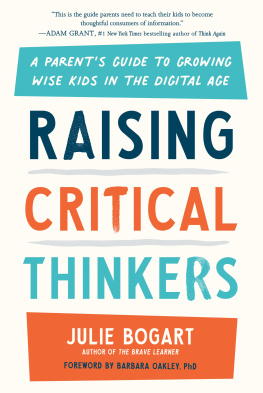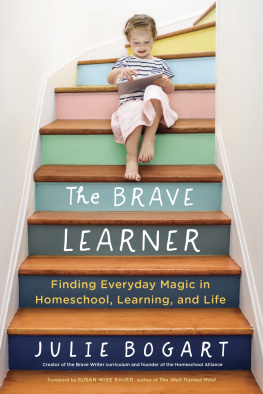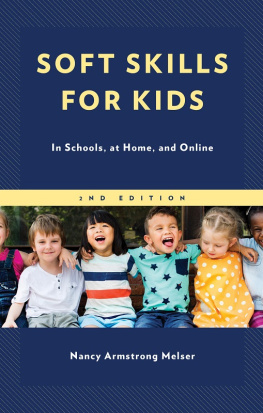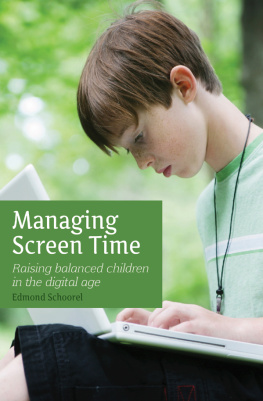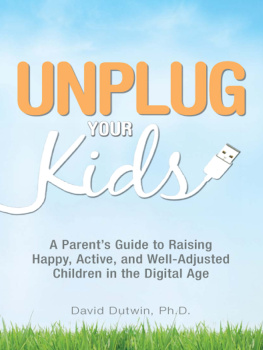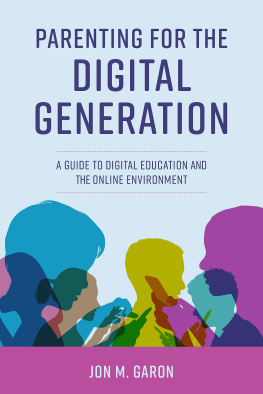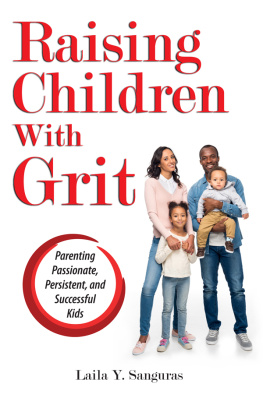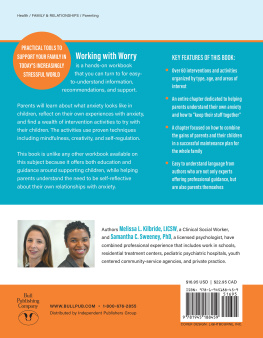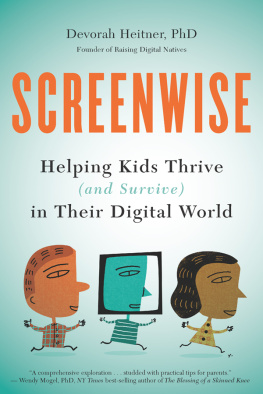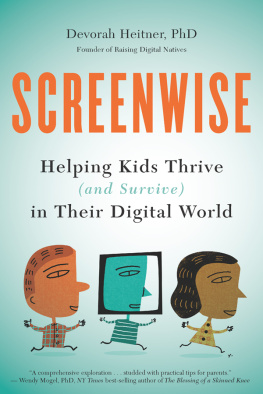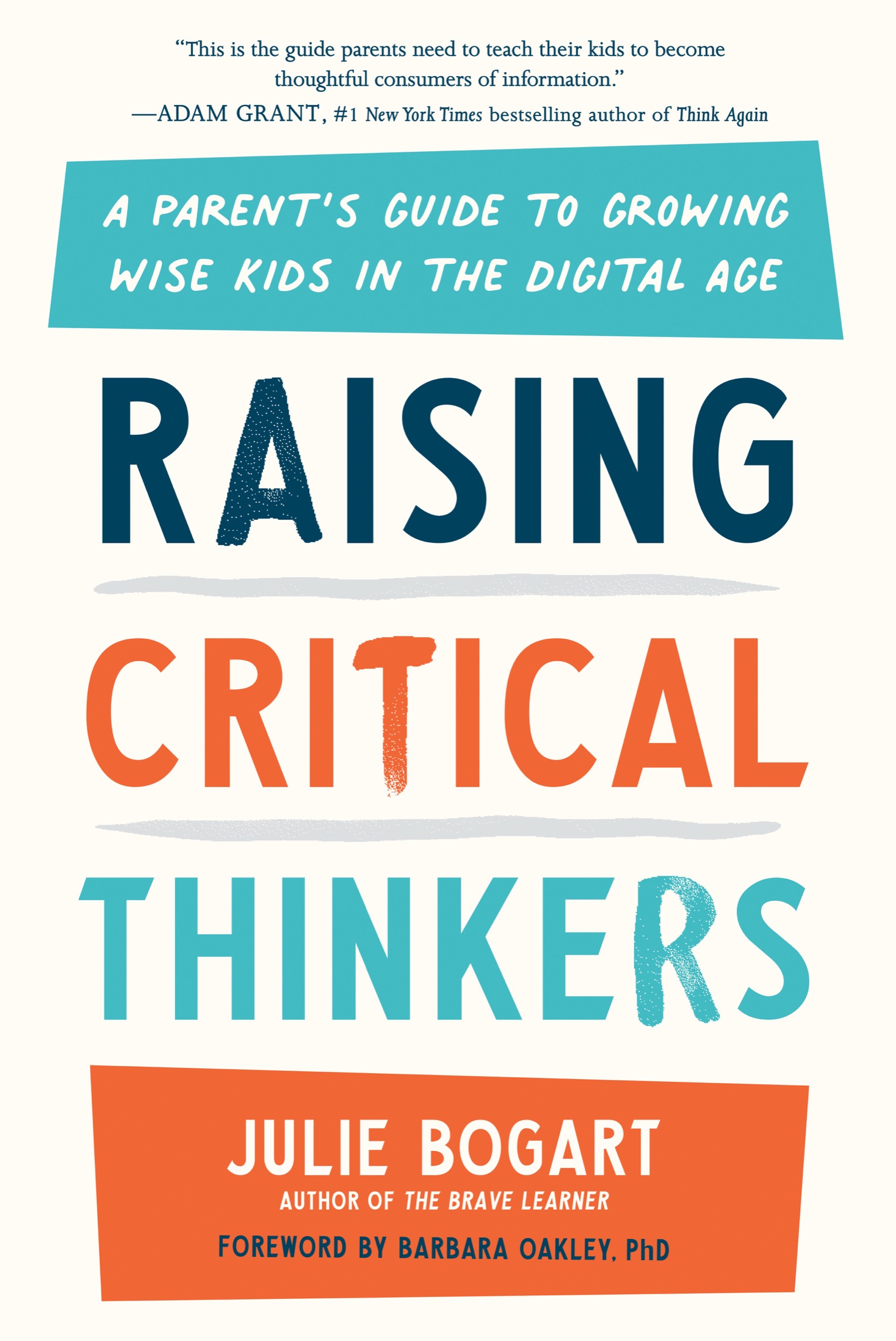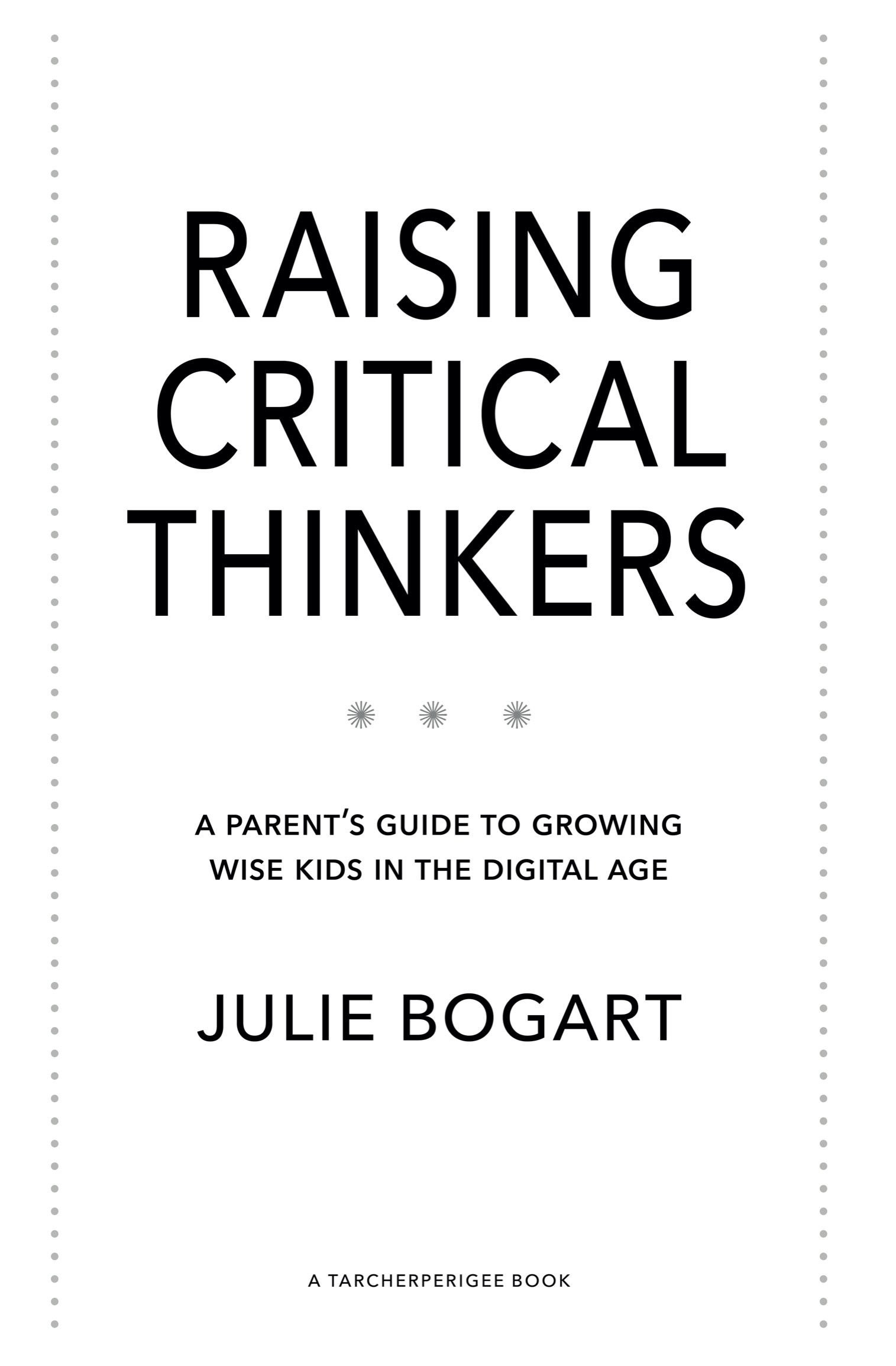Praise for Raising Critical Thinkers

In a world where too many people think they know what isnt so, there are few skills more vital than critical thinking and rethinking. This is the guide parents need to teach their kids to become thoughtful consumers of information.
Adam Grant, #1 New York Times bestselling author of Think Again
Critical thinking is not merely a test of fact versus fiction. In this timely and actionable primer, Julie Bogart teaches us how imagination, self-awareness, empathy, and introspection make true critical thinking possible. These are crucial lessons for children and parents alike.
Ximena Vengoechea, author of Listen Like You Mean It
I am in awe. Every parent and educator needs to read this book. As a psychologist and mother, I understand the importance of raising critical thinkers, but its not always clear what that really means day to day. Raising Critical Thinkers uses cutting-edge education theory and concrete practices to answer: How do we help kids separate fact from fiction? What can we do to keep kids curiosity and itch to learn alive? What fosters self-awareness and flexible perspective-taking in kids? Let Julie Bogart guide you through the wilderness of raising critical thinkers.
Diana Hill, PhD, author of ACT Daily Journal
With fascinating examples and age-specific activities to help kids learn to think deeply, imaginatively, and compassionately, Julie Bogart gives us the guide for nurturing critical thinking in the next generation.
Yael Schonbrun, PhD, assistant professor of psychiatry and human behavior at Brown University
For decades, Ive admired Julie Bogarts wise and humane help for parents who participate in their childrens education.
Peter Elbow, professor emeritus of English, University of Massachusetts at Amherst
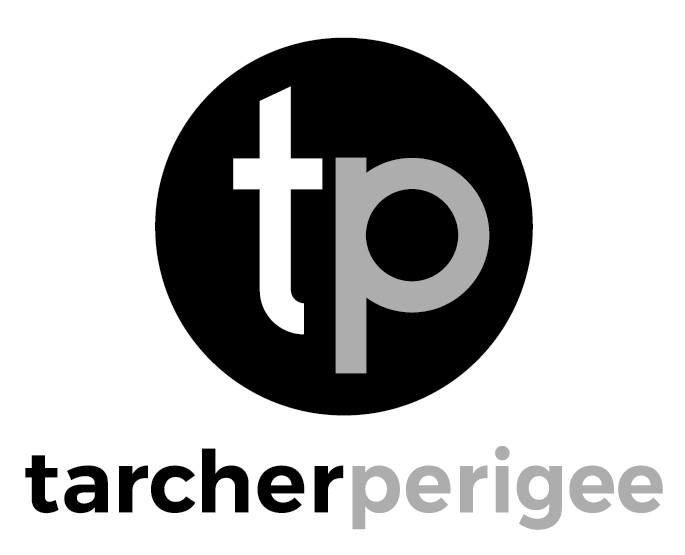
An imprint of Penguin Random House LLC
penguinrandomhouse.com
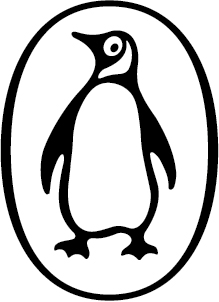
Copyright 2022 by Julie Bogart
Penguin supports copyright. Copyright fuels creativity, encourages diverse voices, promotes free speech, and creates a vibrant culture. Thank you for buying an authorized edition of this book and for complying with copyright laws by not reproducing, scanning, or distributing any part of it in any form without permission. You are supporting writers and allowing Penguin to continue to publish books for every reader.
A portion of the exercises have been adapted from the authors online curriculum, The Writers Jungle, published in January 2000 on the website www.bravewriter.com.
TarcherPerigee with tp colophon is a registered trademark of Penguin Random House LLC.
Hardcover ISBN: 9780593192283
Ebook ISBN: 9780593192290
Book design by Elke Sigal
Cover design: Kimberly Glyder
pid_prh_6.0_139121902_c0_r0
In memory of my aunt June
One life, but were not the same. We get to carry each other.
Bono, U2, One
CONTENTS

FOREWORD
BY BARBARA OAKLEY

I was once asked whether a college course I was creating taught critical thinking. It depends, I said. Whats your definition of critical thinking?
It turned out that the university didnt have a definition for critical thinking. So as I perused the university catalog, looking at all the courses that supposedly taught critical thinking, I realizedcritical thinking at this university means whatever anyone wants it to mean.
That university, our countrys leading institutions, and most especially, you, need Julie Bogarts book.
Raising Critical Thinkers gives tools of self-awareness that can help you and your children catch yourselves being controlled by invisible assumptions that thwart your ability to think clearly and rationally. These invisible assumptions are why seemingly objective scientists, no matter what data and conclusions they are presented with, can find their objectivity tumbling forth to support their preconceived biases. It is also why judges, politicians, managersin fact, virtually everyonecan find it so difficult to step back and look with dispassion at their decision-making.
Neuroscience is beginning to give us a sense of where those invisible assumptions come fromyour brains subconscious procedural learning system. This system detects and formulates patterns. Perhaps most important, it makes judgments. The judgments this system makes (technically, theyre called the output of the value function) sneakily intrude into what you truly believeactually, you could swearare transparently conscious, objective decisions.
Surfacing these kinds of invisible assumptions is almost supernaturally difficult. Perhaps thats why, despite their importance, most books on critical thinking barely touch on preexisting biases. Instead, theyll focus on issues such as honing your own argumentas opposed to, for example, being able to change your mind in the face of compelling reasoning. Or theyll concentrate on methods for objectively evaluating data, without discussing how the mind can fool itself into justifying how objective data can be overruled. Too often, books about teaching our children to think critically focus on how to detect bias out there rather than helping them develop the skills to investigate their own.
Julie approaches critical thinking in an utterly novel way. Like a master poker player, she turns her gaze not only toward the cards being dealt but also inward to the bodys physical tells in reaction to those cards. You may not be able to directly detect the subconscious influence of the procedural system, but you can see its side effects. And these bodily reactions and thought patterns can serve as a guide for digging deeper and being more honest, both with those you are interacting with and yourself. Its this self-awareness that supports you in guiding your children as well.
Is it possible to train your inevitably biased procedural system to be more open and less one-sided? Julies got you covered there, too. She recommends the hereticalreading outside your worldview. And indeed, this is precisely what neuroscience suggests. Its a little like training an artificial intelligence program to play better chess by giving that program broader data to train with. And she gives guidance about how to make room for dissenting viewpointsif anything, this book serves as a much-needed balm for the all-too-contentious social environment we find ourselves in today. Plus, this book is loaded with activities to try with your family, including thinking critically about subjects like grammar and picture books, video games and sports.

